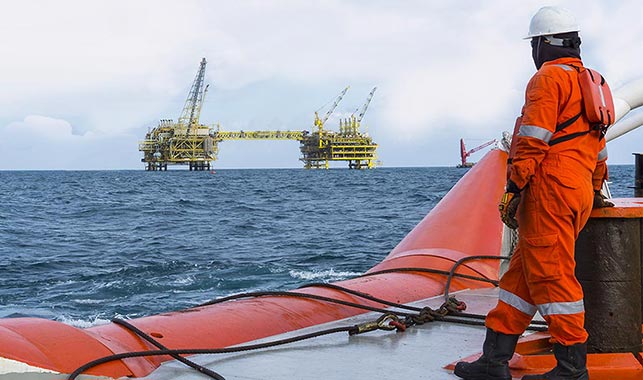Analysis
Mozambique’s three curses: gas, Covid-19 and jihad
In the north of Mozambique, on Africa’s east coast, the coronavirus epidemic has not slowed gas extraction or tempered the violent surge of armed conflict.

The COVID-19 pandemic is forcing a large part of the world’s population to stay at home, while tens of millions of people find themselves out of work overnight. However, in northern Mozambique, the gas industry seems to have no intention of stopping.
The French oil company Total did not stop operations even after a coronavirus case was confirmed among its staff at the beginning of April. As was to be expected, the contagion spread, to such a degree that Total’s facilities became real hotbeds, with about half of the total cases confirmed in the country (65 as of Sunday). Only at that point, when it was already too late, did Total decide to cut back on its activities, without shutting them down completely.
Since the American company Anadarko and the Italian ENI announced the discovery of enormous gas deposits in the north of the country in 2010, Mozambique has become one of the main frontiers of extraction. Currently, three of the world’s largest liquefied natural gas projects are underway in the province of Cape Delgado, with a total investment of over $50 billion. Two of these projects, Coral South and Rovuma LNG, have ENI as one of the companies directly involved.
Projects like these require the labor of thousands of workers, who live gathered in camps located close to rural communities. The risk of contagion is very high for both the former and the latter. With a health system which is inadequate to cope with an emergency of such proportions and the objective difficulty of complying with social distancing rules on the part of large families living in only a few square meters, the result is a highly explosive mixture.
But while protecting public health isn’t able to slow down the gas industry, the oil crisis certainly is. Several companies, including ENI, have recently revised their estimates of future investments downwards, cutting them by 20-30%, depending on the case. One of the most ambitious projects, the Rovuma LNG liquefaction plant, controlled by a joint venture between Exxon, ENI and the Chinese state company, appears to be among those at greatest risk.
Internal sources from Exxon report that the US company wants to postpone the final investment decision, originally scheduled to be made during the coming months. The impact would be devastating for the entire Mozambican gas industry.
However, those who have paid the highest price so far are the communities in the Cape Delgado province. The discoveries that were supposed to bring prosperity and wealth have turned, as it often happens, into a curse.
Many families have already been forced to abandon their land to make room for extraction operations, and many others will have to do so, for a total of about 1,500 families, according to the estimates by the companies themselves. Then, there are more than 3,000 fishermen who will lose access to their fishing waters, which have now been taken over by enormous floating installations weighing tens of tons.
The relocation plans and the compensation promised seem to have made everyone unhappy. Several families have been assigned plots of land that were already occupied by other communities, causing conflict.
However, few are willing to talk about it, for fear that the little they have been able to obtain will be taken away from them. In recent years, several local journalists who have written about this have been arrested.
Then there is the exponential increase in armed conflicts. Since 2017, attacks by Islamist groups have caused the deaths of 700 people and more than 100,000 internal refugees. This has triggered a chain reaction that has led to a total militarization of the area, at the express request of the oil companies operating there.
Alongside the local army, some 200 Russian mercenaries from the Wagner company have been deployed, which has been awarded a contract for the provision of security services in the region.
But whose security? Certainly not that of the local communities, who are now unable to work in the fields because any movement puts them at risk of death. These families are being crushed between drilling on one side and militias on the other. Hundreds of people are forced into a condition in which they risk starvation.
The latest bloodbath took place a few days ago, when Al-Shabab militiamen massacred about 50 people in the village of Xitaxi, not far from the gas fields. Surprisingly, the plants themselves seem to be immune to this violence.
Originally published at https://ilmanifesto.it/gas-covid-19-e-jihad-tre-maledizioni-per-il-mozambico/ on 2020-04-26
